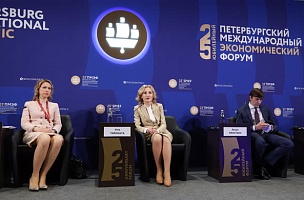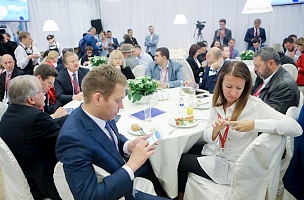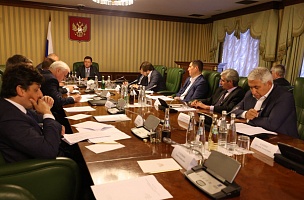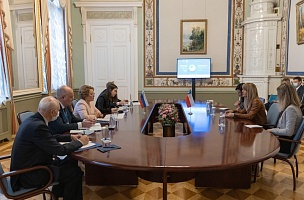The Roscongress Foundation recently held an online discussion entitled Digitalization for Humanity: The World after Quarantine. The event, which took place with the support of Data Economy, looked at how the digital space is helping society manage the consequences of the pandemic. The discussion also focused on whether the coronavirus marked a point of no return, with people immersing themselves online, and whether the government should act as a guide for its citizens in the digital realm.
People in Russia have spent the past couple of months in self-isolation. Over this period, they have shown a great deal of interest in the possibilities offered by digital technologies. Indeed, the restrictions introduced to combat the spread of the virus have made these technologies absolutely indispensable. This was confirmed by Oleg Polataev, Director of Communications at Data Economy, who moderated the discussion: «Visitors to Russia’s public services portal tripled during quarantine, going from 3 million per day to almost 9 million. A catalogue of services has been published on everything.online — a website developed by Data Economy in cooperation with the Ministry of Digital Development, Communications and Mass Media of the Russian Federation. Since its launch, more than 5 million people have viewed the catalogue, both on the website, and the public services portal, where it also appears. In addition, there has been a 300–400% growth in educational services.»
Experts from the Russian Public Opinion Research Centre have been examining how people in Russia have been adapting to the changing situation. Director General of the centre Valery Fedorov shared the latest statistics: «The percentage of Russians working remotely has grown eightfold. When it comes to technology, these people have adapted very rapidly.»
Nevertheless, a significant section of society remains unconvinced by the idea of remote working: «In the long term, widespread remote working combined with widespread office working threatens to reduce productivity. Measures need to be taken to counteract this,» said Fedorov.
The experts in the discussion all agreed that the level of digital literacy remains a crucial challenge today. Elucidating this topic was Yulia Gryaznova, Head of Strategy, Research and Development at National Priorities: «The crisis has split the population in two. On the one hand, there are those who are able to take responsibility for themselves, find a solution to their situation, and take action. On the other hand, there are those who believe their lives are the responsibility of the government or their employer. These people don’t try to find a solution and take action, even in the most trying circumstances. This division has always existed, but during this crisis, the ability to take responsibility for yourself has been critical. What’s interesting is that as a rule, the people who are able to take decisions for themselves have a high level of digital literacy. And the reverse is true — those who place all the responsibility on others tend to have a low level of digital literacy. Of course, it would be good to check this correlation through sociological and psychological research, but as a hypothesis, it’s completely explainable. In the digital realm, a person has to search for things, build scenarios, find solutions, experiment, and take action, all on a daily basis. Therefore, there’s every probability that learned helplessness can be treated by giving people the skills they need to navigate the digital space. There does not seem to be any need for personal development or psychological help.»
A range of sociological surveys conducted in 2019 indicated that more than 40% of society regards new technology favourably, and uses it actively. The experts at the discussion shared the view that Russians are largely optimistic when it comes to technology. What’s more, digital technologies are what can help pave a way out of the current crisis. «Today, it is absolutely vital to be connected to the digital society. The digital sphere is what will help us out of this crisis,» said Alexander Asmolov, Doctor of Psychology, Professor, and Academician at the Russian Academy of Education; Research Professor at the Higher School of Economics; and Member of the Presidential Council for Civil Society and Human Rights.
The guests were in no doubt that things would not return to how they were before quarantine. However, they also expressed the view that in order to move forward, the government needs to help society adapt to the new economic conditions.
Digitalization for Humanity: The World after Quarantine can be viewed in full either on the Roscongress Foundation’s YouTube channel or Data Economy’s YouTube channel.
Visitors to these channels can also view the first and second online discussions in the Breakfast in the Digital Realmseries, which took place on 7 and 20 May 2020.






